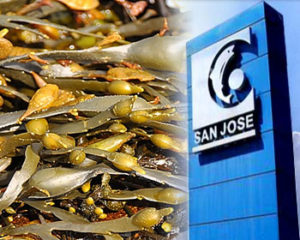Pesquera San José plans to produce biofuels from brown algae (Macrocystis pyrifera), better known as huiro.With this objective in mind, the company is now co-developing the InnovaChile project BAL Biofuels, a consortium of biotechnology research, development and innovation (I+D+i).
Following an amendment to the technical project ‘Macrocystis pyrifera culture in a suspended system’ – sent to Conama Los Lagos on 21 September, Pesquera San José projects this as “an opportunity for diversification based on technological possibilities to generate biofuel from brown seaweed farming,” reads the Environmental Impact Statement (DIA).
The initiative “aims to promote aquaculture for species with high commercial expectations, and a low environmental impact in mass production due to the beneficial contribution it generates by reducing levels of carbon dioxide (CO2),” adds the statement.
The project will be implementated in the commune of Curaco de Velez, in the province of Chiloé, Región de Los Lagos.
[ad]
The consortium, formed by Bal Chile, ENAP, the University of Los Lagos and Architecture Lab, aims to develop programs based on macroalgae, using fermentation technology developed by Bio Architecture Lab Inc. (BAL).
According to a report by Diario Financiero, the obtained biofuels and chemical products will be used in the country as a source of renewable and sustainable energy.
BAL, which is based in America, founded the subsidiary BAL Chile in November 2009, and through it began to cultivate 100 hectares of seaweed on the island of Chiloé, in order to produce biofuel.
Investers of the project will put forward USD 5 million, which will include the construction of a pilot plant in the Region of Los Lagos, where the seaweed will be used to produce ethanol.
Meanwhile, last week a project began which is financially supported by the Chilean government, that aims to promote the diversification of the energy matrix by producing biofuels from microalgae.
The main objective of the initiative is to develop the production of algae to capture carbon dioxide from the atmosphere and to obtain competitively priced oils for biodiesel production.
The project is being developed by the Bioscan in the Antofagasta region, with InnovaChile of the Corporation for the Promotion of Production (CORFO), which facilitated CLP 323 million (USD 647,000).
Source fis.com


